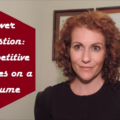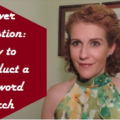Conventional wisdom dictates that job opportunities all but vanish during the summer months. After all, the summer is a prime time for vacations. As such, many job seekers take the summer off from their job search. Unfortunately for them, this theory is simply not true. Even during the summer, people change jobs and companies identify hiring needs. It is true that the summer is prime vacation season, but that only means that the hiring process can be delayed as a result. Business still goes on, and the hiring process, slow though it may be, will continue.
As a savvy job seeker, this is a great time to continue your job search. If most other job seekers take the summer off from their job search, then there is less competition in the market. With less competition, the higher your odds for landing an interview. We have approximately 5 weeks left of summer, so even if you had taken most of the summer time off from your job search, it’s not too late to begin.
Create a Job Search Action Plan
There is a lot that can be accomplished during the next 5 weeks in terms of your job search. The key is to remain focused – and the easiest way to stay focused is to come up with an action plan. Here are the key elements for your action plan:
- Marketing Material – during this first week, take the time to gather your marketing material. This would include updating your resume and creating a cover letter template. I have a templated cover letter, which you can download for free here. In addition, I have a free follow up and thank you template that you can find here.
- Create Lists – I recommend you create three lists: your target company list (companies for whom you are interested in working), a list of 2-3 recruitment agencies you would like to target, and a list of networking contacts (former colleagues, friends, former supervisors).
- Create a Schedule & Stick to It – you can start by listing the tasks you need to accomplish, the time each task will take, and how much capacity or time you will have each week for the tasks you have listed. The tasks would include searching and applying for jobs, making networking connections, and attending networking meetings and interviews. The time it takes for each of these tasks will vary, but be sure to build in time for all of the elements that each task entails. For example, the task of attending an interview should include your research time, the time it takes to get to the interview (with extra time to arrive early), time for the interview, travel time home, and time to write thank you letters, etc. Based on the tasks and timelines, you can start to create targets for the upcoming weeks.
As you are creating your action plan, specifically your schedule, be sure to include any additional development tasks. For example, if you want to take an online course or volunteer, build that into your schedule.
Final Thoughts
We still have a lot of summer left. I would encourage you to spend time with your friends and family. This is a great time for attending barbecues, weddings, and other events. You can take advantage of these opportunities to continue your job search and network. As I’ve said before, you never know who you know who might be the lead to your next job!
I hope you found this post helpful. If you have any additional insights, or would like to share your experience, I’d love to hear from you.
For personalized advice, check out the services section here.
Until next time, happy hunting!








